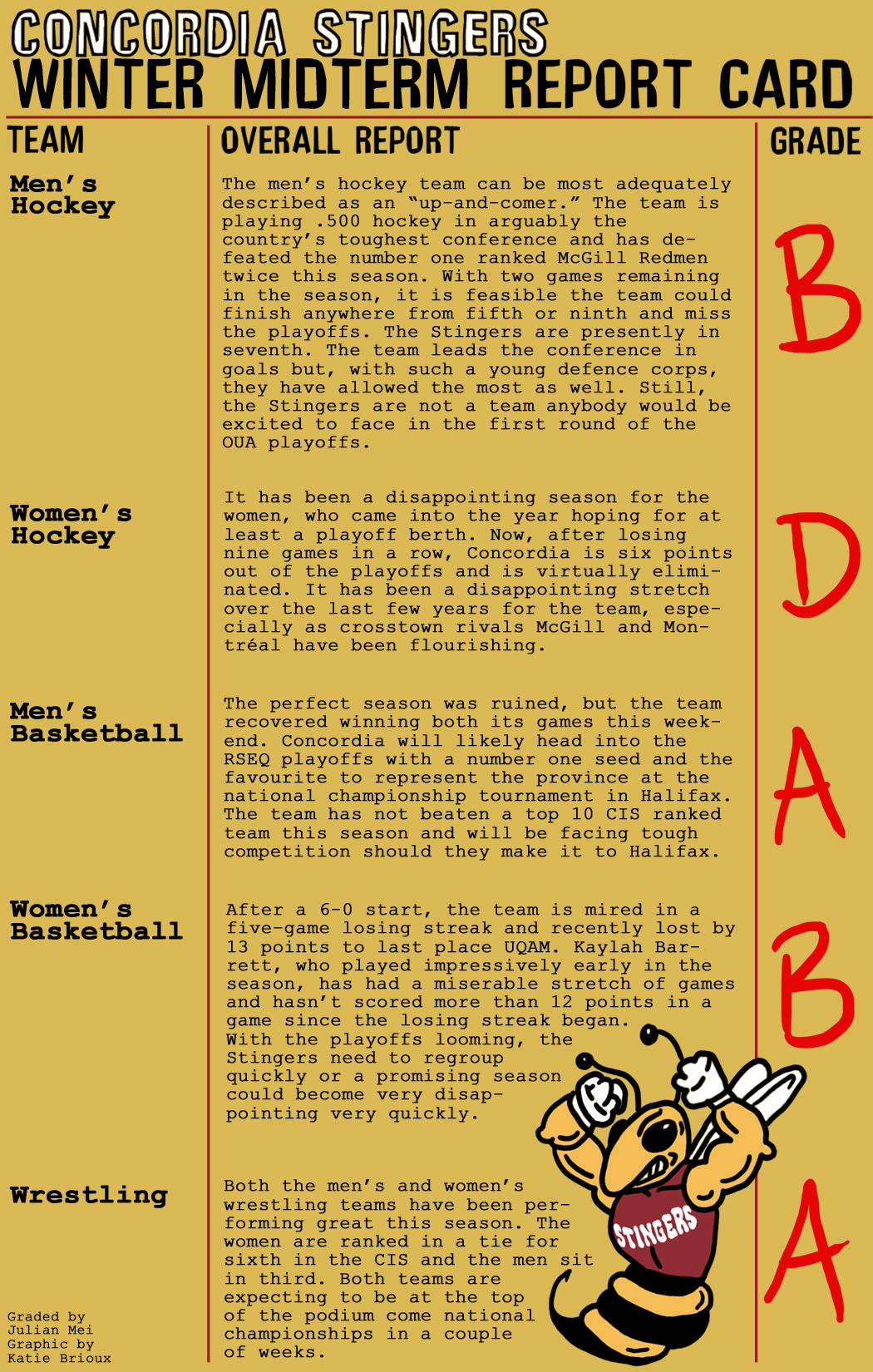For the second consecutive year, the Concordia wrestling team will be returning home from the CIS national championship with some serious hardware.
The men won the team championship in Thunder Bay, Ont. over the weekend, narrowly edging out University of Regina, 56 points to 54, bringing home five medals in total.
It was a nail biting finish to the tournament. With Regina wrestler Gaelan Malloy wrestling in the 62 kg gold medal match, Malloy injured his ankle early and his coach eventually threw in the towel, not wishing to risk his wrestler’s health.
If Malloy had gone on to win his match, Regina and Concordia would have each had 56 points, with Regina holding the tie-breaker of most gold medals (3-2).
“I don’t think (Malloy) was going to win anyways, he was going against a better wrestler,” said Concordia’s assistant coach David Zilberman. “That’s part of competition. Things happen.”
Concordia came into the year with high expectations, but was aware of how quickly things can go awry.
“We came in with an open mind,” said Zilberman. “We have to expect the worst because anything can happen, but just being prepared is the most important thing.”
Several Concordia wrestlers, both men and women, brought home medals.
The women finished ninth out of 13 in the team standings, but still had athletes reach the podium.
Nikita Chicoine had the best finish among the Stinger women, winning a silver medal in the 63 kg weight category. Linda Morais won bronze in the 59 kg weight class and her teammate Veronica Keefe also came away with the bronze medal in the 72 kg category.
Things were golden on the men’s side. David Tremblay and James Mancini both found themselves standing on the top of the podium in the 61 kg and 65 kg categories, respectively.
Scott Schiller won silver for the Stingers and left his coaches very impressed with his effort.
“He was wrestling two weight classes up,” said Zilberman. “He was much smaller than his opponents and still managed to beat the number one seeded wrestler in the first round.”
First-year wrestler Nariman Irankhah won a bronze medal in the 82 kg class and Greg Rossy also came in third in his weight class.
The Concordia men were close to winning even more than an astonishing five medals, with two wrestlers, Noel Tremblay and Mitchell Krauter, finishing just off the podium in fourth place of their respective categories.
Head coach Victor Zilberman was also named coach of the year.
